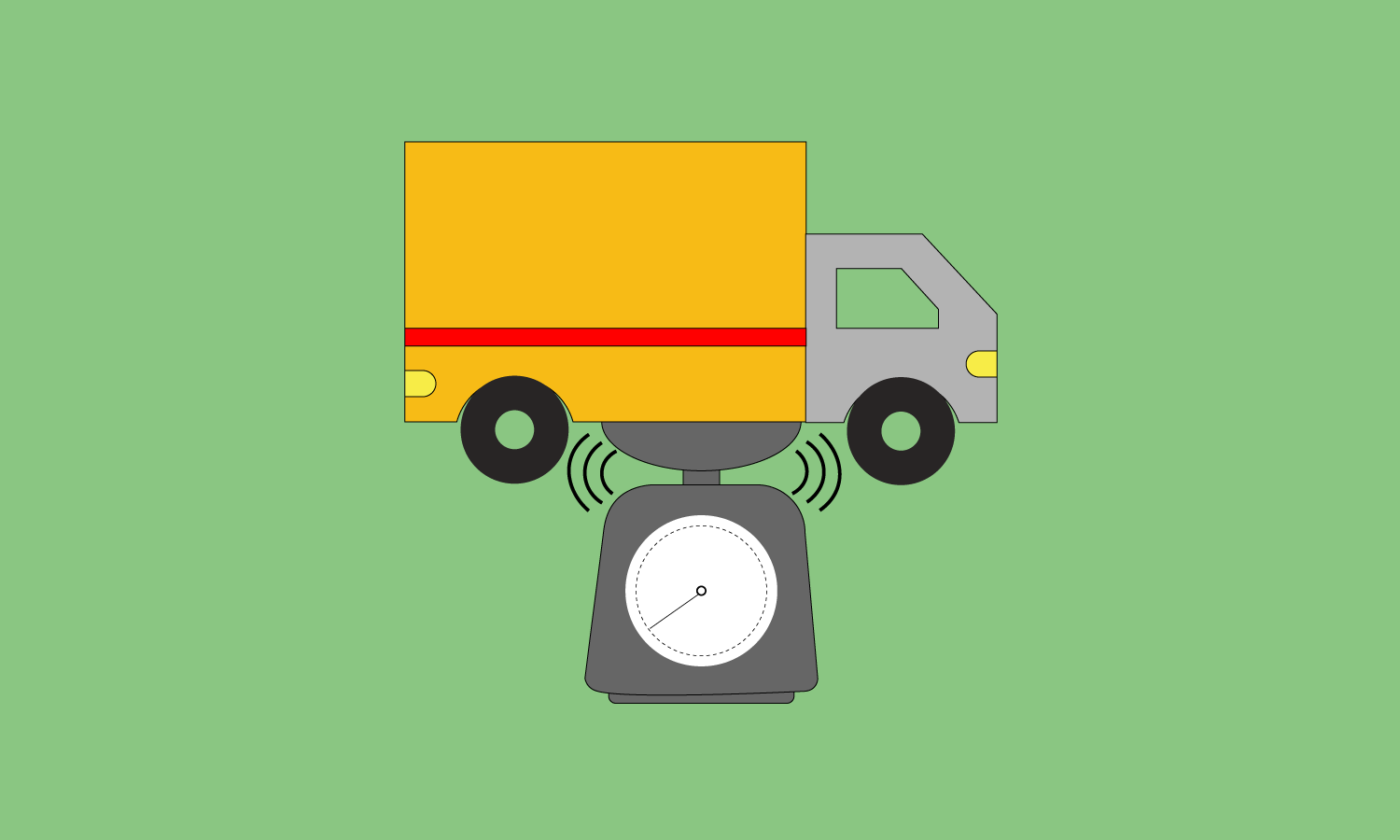In the United States last year, there were more than 800,000 overweight violations on highways and at weigh stations. When a commercial driver’s license (CDL) is obtained, drivers are expected to keep track of all of the information about their truck. One of the most important pieces of information that they need to keep track of is how much their truck weighs.
Driving a truck that is overweight can get you into a lot of trouble. Vehicles that exceed the specific weight limits can get expensive fines and could result in drivers being suspended Overweight trucks have consequences for both the driver and the business, so companies need to ensure that they are following strict measures, such as truck scales to accurately weigh the load, to avoid it. These violations affect your time, costs upwards of thousands of dollars, and could harm your reputation with your customers.
This blog post will cover what the overweight truck restrictions, why they are in place, what the consequences are, and how to avoid it.
What are the Weight Restrictions?
Most people are surprised to find out that there are many weight limits that must be obeyed. There are detailed weight restrictions that are outlined by the Department of Transportation (DOT). The overall weight of a truck is a maximum of 80,000 pounds.
Gross weight: The gross weight of a truck is the total amount, this includes the fuel, driver, and cargo. Trucks cannot weight over 80,000 pounds unless they have special permits.
Axle weight: The axle weight it the total amount of weight that can rest on each axel. The max weight for each axel is 20,000 pounds.
Tandem weight: The tandem weight is the maximum amount of weight that is allowed on your tandem axels when they are between 40 and 60 inches from one another. The max weight for the tandem axels is 34,000 pounds.
Why are there Weight Limits?
Truck weight limits first started in 1918 in Maine, where they were only allowed 18,000 pounds max. In 1974, the Federal Government set the maximum weight to 80,000 pounds. Anything above must have special permits that are given on a case by case basis. The main reason for a weight limit on trucks is due to the amount of weight that bridges in the United States can hold.
Since there have been advancements in the engineering of bridges would assume that the maximum weight would have increased. However, the concern now is the damage that is done to the pavement/roads from a heavy truck. It is estimated that the average cost to maintain a mile of road in the United States is between $2,500 to over $225,000 per year. Furthermore, it is estimated that $350 a year is spend on car repairs related to poor road conditions.
In addition to the damage that overweight trucks cause, they are also a safety concern for other drivers around them. Some of issues that can arise is stopping distance and travelling on steep hills. An average truck, which is not overweight, needs at least a quarter of a mile to come to a complete stop if they are travelling at 65mph. What is more is when a truck is travelling on steep hills and lose control, especially inexperienced drivers.
What are the Consequences of an Overweight Truck?
If you are driving an overweight truck and you are found in violation, there are penalties that you will face.
To start, you can get hefty fines. If you are carrying anything over the permissible weight, law enforcement will write up overweight truck fines for thousands of dollars. Not only will the driver get a fine, sometimes companies may be fined for allowing the trucks to be sent on the road. Some cases, repeat offenders are charged double or triple the amount.
In some states, drivers of overweight trucks could go to jail for up to two months. In addition to jail time, the driver’s commercial driver’s license could be revoked. Not only will you have problems with your driver, but you could also end up with problems with your customers.
Caught in violation with an overweight truck results in delayed deliveries. Often times, weigh stations force drivers to shut down their operation, meaning that your business will lose time and money waiting for another truck to arrive and unload the excess weight.
Furthermore, there are increased risks of accidents, which then could result in charges. The performance of the truck differs depending on its weight. Overweight trucks may go down an incline faster than usual, which the driver may not be expecting. It becomes very serious when overweight trucks are involved in accidents. Not only will there be tickets for being overweight, but there could be criminal charges. Most states will prosecute a driver if their overweight truck caused an accident that resulted in death or serious injury.
How to Avoid Having an Overweight Truck
There are a few ways to ensure that your trucks are the right weight.
- Do not carry unnecessary items. Discard all of the things you do not need for the trip ahead of time and only take what is required.
- Delegate work. You cannot do everything on your own; this increases the chance to miss critical things. Have people help and keep track of the weight in the trucks.
- Have an overweight permit. If you must have an overweight truck, get a permit that covers the projected loads you are transporting and any special requirements.
- Consider the weight of your fuel. This is the most common factor that is often forgotten about.
- Secure your loads properly. Make sure that your load is evenly distributed and secured properly. Having loose tarps and ties can damage the vehicle axles and shift the load while driving.
Ensure that all employees are taking the weight of their truck seriously. This makes the difference between being safe and arriving on time.
Summary
An overweight truck violation can have a wide range of consequences. It is important that businesses understand and follow all of the rules and regulations. You want to ensure that your operation runs smoothly and keep your suppliers and customers happy.



